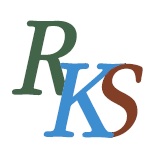 ISSN : 1229-0076
ISSN : 1229-0076
A Case Study on Teaching Korean History in English in Korea
Abstract
This paper is a report as well as a case study of teaching pre-modern Korean history in English by Korean teachers who have studied in Korea. The students who took these courses consisted of three different groups: American exchange students, Chinese students, and Korean students. Each of these groups showed varying interest based on their intellectual backgrounds. The American students exhibited more interest in interactive learning such as Korean traditional music and field trips to sites of various examples of Korean historical architecture, while the Korean and Chinese students found this architecture familiar and were not as enthusiastic as the American students. Regarding the three groups’ general responses to the course, the Chinese student were surprised to find China being depicted as invaders, while the Korean students were intrigued by different interpretations of their national history than they had been accustomed to. The American students, on the other hand, were quite unemotional concerning the various interpretations of Korean history. These reactions showed how ones’ perspective on history is heavily influenced by ones’ educational background. Overall, these courses were very interesting and helpful as they allowed both students and lecturers to widen their understanding of how Korean history is perceived and perpetuated by different academic societies.
- keywords
- Korean History, teaching in English, Korean teacher, English immersion education, interactive learning.
참고문헌
Appleby, Joyce O., Lynn A. Hunt, and Margaret Jacob. 1994. Telling the Truth About History. New York: W.W. Norton.
Association of Korean History Teachers, The. 2005. Korea through the Ages: Volume 1. Seongnam: Academy of Korean Studies.
Course homepage. http://K-history.com.
Craciun, Claudiu. 2004. Teaching political science at the movies (Paper to be presented in the Epsnet plenary conference). Prague: Charles University.
Eckert, Carter, Ki-Baik Lee, Young Lew, Michael Robinson, and Edward W. Wagner. 1990. Korea Old and New: A History. Seoul: Ilchokak.
Hankyoreh, The. 2010. South Korean, Chinese and Japanese history textbooks diverge on historical accounts. March 1. http://english.hani.co.kr/arti/english_edition/e_international/407383.html.
Lee, Hyunsook. 2009. Globalization, English and Korean history in Korea: A case study of teaching Koresan history in English in South Korea. Paper presented at the conference Reflections on Teaching Korean History in English, July 1, Robinson College, University of Cambridge.
Palais, James. 1995. A search for Korean uniqueness. Harvard Journal of Asiatic Studies 55 (2) December: 409-425.
Park, Hyu-yong. 2009. Yongeokyoyuke itsseoseo bipanjeok eoneohaki doip (Introducing critical applied linguistics to English education: From the post-colonial perspective). Hankukkyoyuk 36 (1): 143-164.
Phillipson, Robert. 2001. The globalization of English. Asia Munwha. 17 (August): 311-348.
Robinson, Michael. 2007. Review of Everlasting Flower: A History of Korea, By Keith Pratt. Bulletin of the School of Oriental and African Studies 70:447-449.
- 다운로드 수
- 조회수
- 0KCI 피인용수
- 0WOS 피인용수

